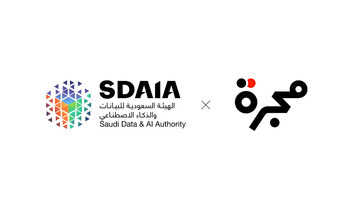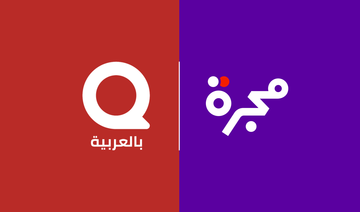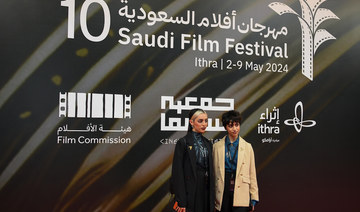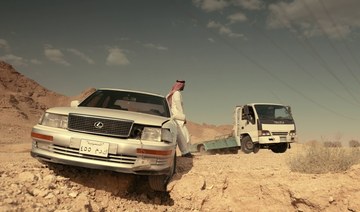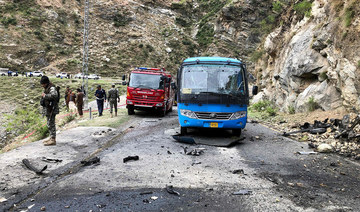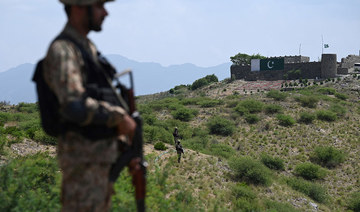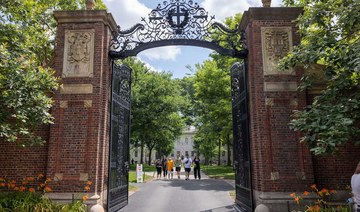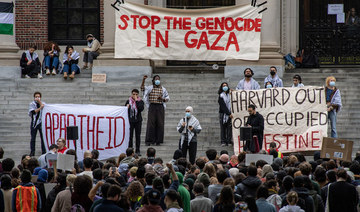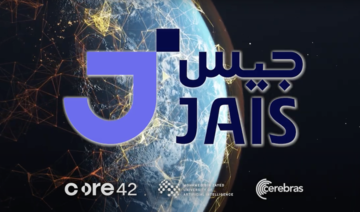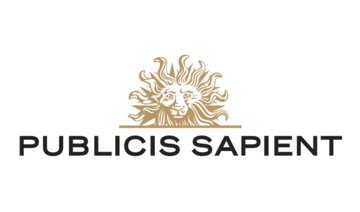BEIJING: If you can make smartphone apps, Chinese tech giant Huawei wants you.
The No. 2 global smartphone brand is struggling to hold onto its market after Washington accused Huawei of being a security risk and blocked access to US components and technology.
That includes YouTube and other popular Google “core apps” customers expect on new phones. They will be missing from the global rollout of Huawei’s next model, the P40, due out in March, replaced by its own music, payment and other apps.
Huawei Technologies Ltd., along with every other smartphone brand except Apple Inc., relies on Google’s Android operating system. So it’s scouring the world for replacements. At events for developers from New Delhi to Warsaw to Sao Paulo, Huawei is promising cash rewards if they meet a deadline Friday to get apps onto its online store.
The company says it will invest $1.5 billion in app development. It faces an expensive, uphill struggle to create alternatives to the Google-centered world of music, navigation and other apps, according to industry experts. Others including Nokia and Microsoft have tried and failed to create their own mobile ecosystems.
Creating “diverse apps” is a “really challenging task to Huawei,” said chairman Guo Ping in videotaped comments released by the company.
Huawei, also the world’s biggest maker of switching gear for phone networks, rejects US accusations it might facilitate Chinese spying. Chinese officials accuse Washington of using phony security claims to hurt a commercial rival.
The Trump administration also is pressing European and other allies to exclude Huawei switching gear from next-generation telecom networks.
The conflict has fed fears technology industries might split into Chinese, US and other spheres with incompatible products.
Huawei’s founder, Ren Zhengfei, has said it wants to stay in a unified global industry and work with Google and other US partners.
The Android system is open-source, meaning phone brands use it for free but most also pay Google for “core apps” and the software to support them.
Huawei can keep using Android but is blocked from buying those “core apps” for pre-installation. That threatens to cripple Huawei’s ability to compete with market leader Samsung and other Android-based phones.
Consumers expect “well-known apps that their peers are using,” such as Google Maps, said Thomas Husson, a principal analyst for Forrester, in an email. “It would require massive investment to convince developers to develop for a new eco-system and a lot of marketing efforts.”
Huawei already sells phones without Google “core apps” in China, where the ruling Communist Party’s Internet filters block access to YouTube, the Google search engine and thousands of other foreign websites. Instead, Huawei phones come with Chinese search engine Baidu.com, video service Youku.com and other local apps.
But Huawei competes on a level playing field in China with competitors that face the same restrictions. In other foreign markets the others have the popular Google package.
For the P40, Huawei has signed an agreement for developers to use maps from a Dutch provider, TomTom. Details of other services have yet to be announced.
In response to questions, Huawei said executives would talk to reporters next month at the Mobile World Congress, the industry’s biggest annual event. The chief executive of Huawei’s consumer unit, Richard Yu, told reporters in December the P40 would be launched in Paris in late March, using Android instead of Huawei’s HarmonyOS operating system, which it unveiled last year.
HarmonyOS is based on code developed for other Huawei devices and could replace Android if needed. But the company wants to keep working with Google, which has spent more than a decade improving Android with input from Huawei and other companies.
Replacing Google apps is “a massive undertaking for any company,” said Dermot Daly, chief executive of Tapadoo, an Irish app developer that isn’t working for Huawei.
Huawei Mobile Services offers some 45,000 apps. But that is barely 1.5% of the 3 million titles on Google Play Store, where most Android users get apps.
Huawei needs to replace Google code that supports video and other features, said Daly. Then it needs to persuade developers to adapt apps to run on Huawei’s new code.
“They’re not building from scratch, but they face a big technical hurdle,” said Daly. “Becoming a world-class software maker is a massive challenge.”
Nokia Corp. took a similar approach with its first smartphone a decade ago but failed to attract enough apps for its system, said Daly. He said Microsoft Corp. tried again after acquiring Nokia’s mobile phone unit in 2013 but faced similar lack of developer interest.
Such difficulties highlight the dominance of US app providers and the very gradual emergence of global alternatives.
For music, Sweden’s Spotify or France’s Deezer may come preloaded on phones, depending on deals with local phone carriers, said Forrester’s Husson. Other options include China’s TikTok for video, Russia’s Yandex for search and email or OsmAnd and MapQuest for navigation, though none is as highly developed as Google or Apple services.
The search goes on: At an event in New Delhi, Huawei promised $20,000 per app for development costs, according to the newspaper Economic Times.
In London, the website Telecom.com said developers were promised a 20,000 pound ($26,000) reward if they meet a Jan. 31 deadline. A video released by Huawei said the company has set aside $10 million to subsidize app writers in Poland.
Huawei says its 2019 sales rose 18% to $122 billion. But it warned the smartphone business, which shipped 240 million handsets last year in 170 countries, could suffer.
The Trump administration has postponed full enforcement of sanctions after US processor chip makers and other vendors warned they would lose billions of dollars in sales. But Ren, the company founder, has said Huawei expects them to go ahead.
Huawei has one of the world’s biggest research-and-development budgets and ramped up spending on developing its own chips and other technology long before running afoul of Washington.
It spent more than $15 billion last year — more than Apple or Microsoft — and a total of 485 billion yuan ($65 billion) over the decade before that. Industry analysts say the company is increasingly self-sufficient in chips and other components.
Huawei has yet to confirm details of the P40, but news reports suggest it will run on the company’s Kirin 990 chip instead of one from Qualcomm or Intel. That reduces risks of supply disruptions.
“We will become more open and work with our partners around the world to develop secure, sustainable and thriving eco-systems,” said Guo, its chairman.
At the same time, Huawei is trying to persuade Canada to release its chief financial officer. She is being held in Vancouver on US charges related to possible violation of trade sanctions on Iran.
Ren, who founded Huawei in 1987, expresses confidence it can withstand US pressure.
“The United States might further escalate their campaign against Huawei, but I feel the impact on Huawei’s business won’t be very significant,” Ren said during an appearance at the World Economic Forum in Switzerland. “I think we are more confident that we can survive further attacks.”
Huawei races to replace Google apps for next smartphone
https://arab.news/m9msj
Huawei races to replace Google apps for next smartphone
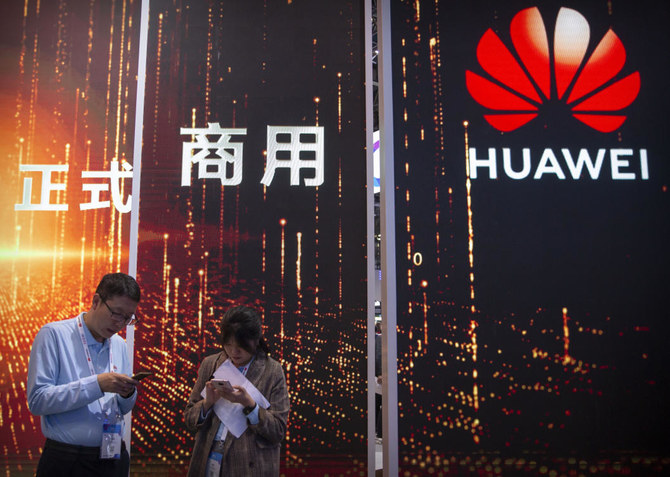
Majarra to publish ‘Werathyat’ magazine in partnership with Saudi Society for Medical Genetics

- Collaboration includes agreement to disseminate knowledge about genetic science and medicine in Arabic
DUBAI: Arabic digital content provider Majarra has signed an agreement with the Saudi Society for Medical Genetics to publish Arabic content that advances knowledge sharing in the field of genetics.
As part of the agreement, Majarra will publish SSMG’s quarterly journal “Werathyat,” which raises awareness, and provides education about genetic diseases and advancements in the field.
The magazine also highlights SSMG’s new initiatives and social responsibilities, with the goal of promoting genetic literacy and reducing the prevalence of genetic diseases in Arab societies, the companies said in a statement.
Additionally, the two organizations will collaborate on publishing other high-quality Arabic content on genetic counseling in order to enhance community awareness of genetic diseases, rectify misconceptions surrounding them, and provide psychological and cognitive support to individuals affected by such conditions.
The partnership plays a key role in showcasing SSMG’s efforts “to provide health care, social support, and educational services to individuals with genetic diseases and their families” and “facilitates the dissemination of awareness and genetic guidance through the innovative projects and programs implemented by our Society,” said SSMG spokesperson Prof. Zuhair bin Abdullah Rahbini.
For Majarra, the agreement “aligns with our mission to deliver the best Arabic content on the Internet” and the company will work with SSMG “in carrying out its mission of developing the medical practice of genetics, enriching scientific research, and providing awareness, the level of health awareness in our Arab societies,” said Dia Haykal, Majarra’s director of partnerships and branding.
“Werathyat” will be available on Majarra’s paid subscription-based mobile app. SSMG will provide Majarra subscriptions to all its members.
Britain’s Arab-focused SAFAR Film Festival to feature stories from 15 countries

- Biggest festival to date will include 60 screenings and events across four London venues, plus screenings in 8 other UK venues
LONDON: This year’s SAFAR Film Festival will be held from June 18-30 in nine British cities, making it the largest and longest-running Arab cinema event in the UK, according to the Arab British Center.
Curated by long-time SAFAR and Arab British Center collaborator Rabih El-Khoury, the 2024 program will explore the themes of dreams, hopes, and realities through stories from 15 Arab countries.
The festival’s program features 60 screenings and events across four London venues, as well as cinemas in Birmingham, Cardiff, Glasgow, Hull, Liverpool, Manchester, Oxford and Plymouth.
El-Khoury said the festival will include Sudanese and Palestinian cinema, and promised audiences “themes spanning family dynamics, loss, love, migration, and the harsh truths of war and politics.”
He said: “Within these stories, and through challenging and captivating cinema, we aim to facilitate exchange, reflection and share strength in solidarity.”
In its ninth year, SAFAR is viewed as the leading platform for showcasing Arab cinema in the UK.
The program features new releases, classics, archive film, and family-friendly screenings.
Highlights include the documentary “Life is Beautiful” by Mohamed Jalaby, which examines European solidarity, and the rigidity of borders, both physical and bureaucratic, amid the Gaza war in 2014.
Other works include “Bye Bye Tiberias” by Lina Soualem, a poignant exploration of four generations of Palestinian women; “The Burdened” by Yemeni director Amr Gamal, which follows Isra’a and Ahmed who struggle to provide a sense of normalcy for their three young children; and “Inshallah a Boy” by Amjad Al Rasheed.
“The festival forms a key part of our work to further understanding of the Arab world in the UK,” said Nadia El-Sebai, executive director of the Arab British Center.
“This year we are honored to work once more with Rabih El-Khoury and our guest curators and partners across the UK to present our biggest festival to date.
“Despite the shadows cast by the difficult realities faced across the region, SAFAR invites us to come together and find solace, hopes and dreams, in the universal language of cinema,” she said.
Taliban warn journalists and experts against cooperating with Afghanistan International TV
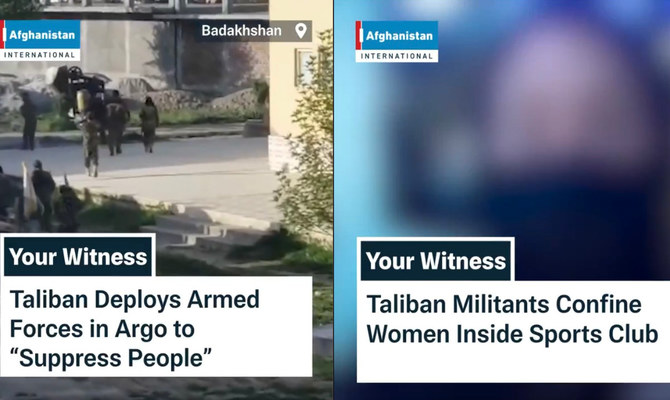
- Cooperating with the London-based media outfit is a crime, says Taliban information ministry
- During their previous rule in the late 1990s, the Taliban barred most TV, radio and newspapers
KABUL, Afghanistan: The Taliban on Thursday warned journalists and experts against working with Afghanistan International TV, saying they would be committing a crime if they cooperated with the station. It’s the first time they have told people not to cooperate with a specific outlet.
Afghanistan International TV, which is headquartered in London, is accessible through satellite, cable and social media.
A spokesman for the Taliban-controlled Ministry of Information and Culture alleged the station was committing professional violations and violating moral and legal boundaries.
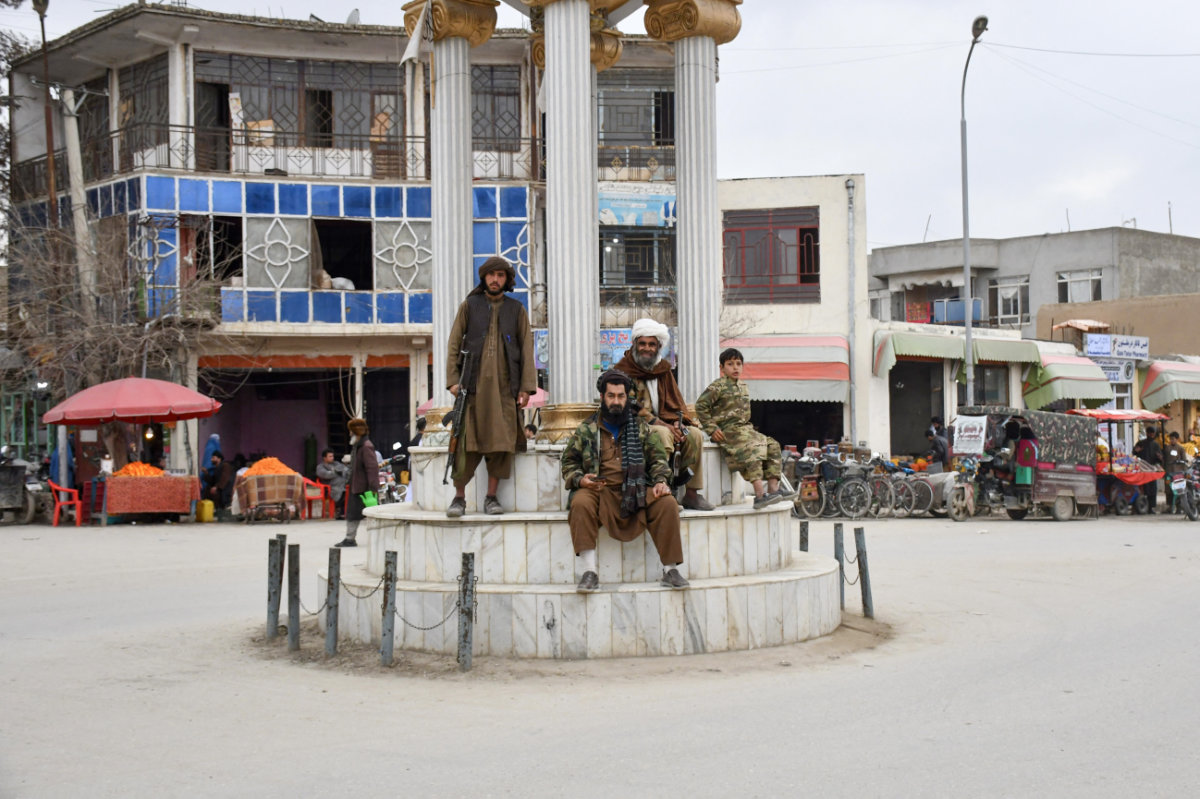
The Media Violations Commission wanted all journalists and experts in Afghanistan to cease their collaboration with the station, said ministry spokesman Habib Ghofran.
“At the commission’s meeting held yesterday (Wednesday), it was decided that participating in discussions and facilitating the broadcast of this media outlet in public places is prohibited,” added Ghofran.
The deputy minister for broadcasting Zia ul Haq Haqmal said people would be committing a crime if they cooperated with the station.
He cited 10 reasons to avoid working with Afghanistan International TV, including its alleged distortion or falsification of information and campaigning against the ruling system.
“If someone does not cooperate on the basis of all these 10 reasons, then it’s the court’s job to give a punishment,” said Haqmal.
The director of Afghanistan International TV, Harun Najafizada, said the commission’s decision would not affect the channel because it had no employees or freelancers in the country.
“We don’t have anyone on the ground and rely on the reporting of Afghan citizens,” said Najafizada. “That’s more challenging, but we have tough verification. It’s a threat to free media, to other media, and to put pressure on us to forgo our professional standards. It’s not going to work.”
Afghanistan fares abysmally in terms of press freedom. The latest index from Reporters without Borders ranked the country 178 out of 180. It ranked 152 last year.
The organization said three radio reporters were arrested in April for broadcasting music and receiving calls from female listeners during shows. Local authorities weren’t available to confirm the arrests.
Also last month, the Taliban suspended two TV stations for failing to “consider national and Islamic values.”
The director for one of the suspended stations, Barya TV, rejected the Taliban’s allegations. The station is still off air.
Latif Sadiq said the station wasn’t informed about the suspension. “The reports that they repeatedly warned (Barya) are absolute lies,” Sadiq said Thursday. “They have decided on their own that (Barya) television is off, broadcasting is off, and they said the case will go to court.”
Many journalists lost their jobs after the Taliban takeover in 2021, with media outlets closing over a lack of funds or because their staff left the country. Women journalists face additional hardships because of work bans and travel restrictions.
During their previous rule in the late 1990s, the Taliban barred most television, radio and newspapers.
170 speakers and 1,000+ delegates gather for Gulf Creatives Conference at Harvard University
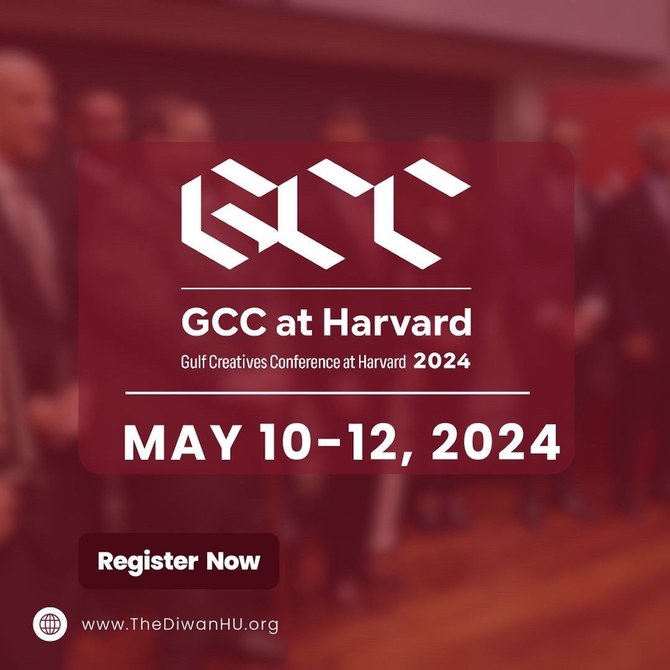
- The 3-day event aims to be ‘the premier gathering for creative minds from the Gulf in the US,’ and to ‘empower, inspire and support Gulf creatives to drive positive change’
- It is organized by The Diwan, a student-run organization intended to provide a platform for discussion of topics relevant to the Arab world, and particularly the Gulf region
BOSTON: A Gulf Creatives Conference will begin on May 10 at Harvard University, bringing together more than 170 speakers and over 1,000 delegates from sectors such as arts and culture, business and innovation, nonprofits and public policy, healthcare, and science and technology.
The three-day event is organized by The Diwan, a student-run organization at the university in Cambridge, Massachusetts.
Abdulla Almarzooqi, chairperson of the organization’s UAE Committee, and a graduate student at Harvard, told Arab News the aim is for the conference to “become the premier gathering for creative minds from the Gulf in the US,” and to “empower, inspire and support Gulf creatives to drive positive change.”
The Diwan was founded in the fall of 2023 as a platform for experts, academics, policymakers and students to discuss topics relevant to the Arab world, and particularly the Gulf region, including entrepreneurship, the empowerment of women and young people, and education, he added.
It organized a conference in November last year titled “Shaping the Arab World: Navigating Opportunities and Challenges” that addressed the geopolitics of the region and the ongoing war in Gaza. Almarzooqi said it was the largest gathering of Arab ambassadors in the history of Harvard University.
Now the organization is hosting the Gulf Creatives Conference, at a time when emotions are running high on many college campuses in the US amid protests against the conflict in Gaza by students and, in some cases, faculty members. However, the Harvard event will focus on “creativity and showcasing the region’s most promising talents,” said Almarzooqi.
“Amid the rising tensions on US college campuses, we believe firmly in the power of creativity and the arts in healing wounds and bridging divides,” he added.
The conference will include 24 discussion sessions and five workshops, covering topics such as public policy, innovation strategies, and the future of healthcare, in which all delegates are encouraged to actively participate, organizers said.
The speakers include prominent figures such as: Dr. Mahmoud Al-Yamany, sector head of health and well-being at the NEOM urban development megaproject in Saudi Arabia; Majid Ibrahim Al-Fayyadh, CEO of the King Faisal Specialist Hospital and Research Center in Riyadh; and Deemah Al-Yahya, secretary-general of the Digital Cooperation Organization.
The Gulf Creatives Conference will take place from May 10 to 12 at Harvard University.
‘Vision 2030 has set a blueprint for the future of the Kingdom,’ says TBWA\RAAD’s Saudi MD
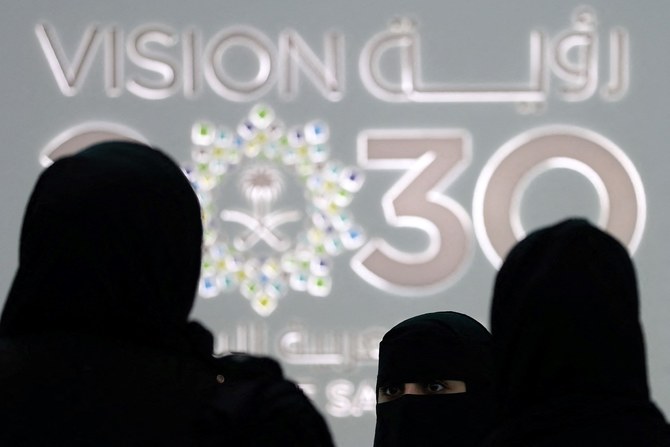
- Ad agency’s new Riyadh office to serve as a central hub for local, regional, global brands looking to succeed in Saudi Arabia
DUBAI: Advertising agency TBWA\RAAD appointed Dan Leach as its managing director for operations in Saudi Arabia following the establishment of a new office in Riyadh earlier this year. It is now bidding to cement its presence in the Kingdom.
The agency has been working with clients such as KFC, NEOM, and Nissan in the Kingdom for 20 years and now, with its new office, it aims to strengthen and serve as “a central hub for local, regional, and global brands looking to make their mark in the country,” Leach said.
He told Arab News: “The Middle East is renowned for its leadership and bold ambition, and Saudi Arabia exemplifies these qualities. But what I believe makes the Kingdom stand out further is its single-minded approach to disrupting the status quo … of everything.
“From building the largest vertical city in the world in NEOM; redefining luxury in the Red Sea; bringing the world’s sporting events to the country and more, there is no blueprint for what Saudi Arabia is doing.”
 Staffing the new office is a “critical aspect of our expansion strategy” and the company is currently focusing on making “strategic hires,” including a new local senior management team, with the objective of ensuring “we have the right talent in place to meet the dynamic needs of our clients, driving our success not only in Riyadh, but across Saudi as a whole,” Leach said.
Staffing the new office is a “critical aspect of our expansion strategy” and the company is currently focusing on making “strategic hires,” including a new local senior management team, with the objective of ensuring “we have the right talent in place to meet the dynamic needs of our clients, driving our success not only in Riyadh, but across Saudi as a whole,” Leach said.
Saudi’s Vision 2030 has accelerated the growth of multiple industries, as well as technology and innovation, presenting new opportunities for advertising agencies like TBWA\RAAD.
Leach added: “Saudi’s story now belongs on the world stage, which implies that storytelling must be characterized by award-winning strategic and creative thinking.”
The country’s ambition to be at the forefront of technology such as artificial intelligence aligns with the agency’s vision.
Leach said: “We need to keep pace with the ambition of the Kingdom in this area and ensure our clients are benefiting from transformative innovation that can reach new customers.”
This ambition is evident in the growth of the creative and media industry, which is already seeing an “influx of bold award-winning campaigns fueling the emergence of incredible, young creative talent that will see the sector thrive for years to come,” he added.
Contrary to the common belief that Saudi lacks creative talent, Leach’s experience has been quite the opposite.
He said: “I have had a number of discussions with young creatives, and there is a genuine passion and hunger from this next generation to be at the forefront of the industry.”
He believes it is important for the industry to foster this talent in order to bolster the growth of the industry. The agency is therefore working with local universities to implement a graduate and internship program to help identify and support creative talent in the Kingdom.
Saudi Arabia’s growth and vision have attracted global attention and investment, with brands stepping up their game in the Kingdom. Leach, however, cautions brands against entering the market with a copy-and-paste approach.
He said: “We’re seeing a lot of brands come into the Kingdom with the approach of simply localizing copy and thinking that is enough to win; it’s not.”
He explained that Saudi consumers are savvy and can distinguish between brands that are being opportunistic and those truly embracing local culture.
Brands can also find success in aligning their story with that of the Kingdom and its leadership, Leach said.
He added: “Brands are entering a country that has near unlimited ambition — they need to match that energy.”
They do so by embracing new technology and aiming big, he said, and this also means brands should experiment and do things differently.
He said: “The Kingdom is an incredibly exciting place where there is room and opportunity to challenge the status quo.”
TBWA\RAAD, for example, has made significant advances in adopting AI — such as partnering with Core42 last year to harness the potential of Arabic large-language model Jais in the creative sector and launching its own ChatGPT-based tool Co-Pirate — to support clients.
The agency is also working on bringing new products to the Kingdom, including dedicated social media programs, retail initiatives and internal communications platforms.
Leach said: “Our ambition is not to be the largest agency in the Kingdom but creatively the most exciting, and Saudi Arabia presents the perfect canvas upon which we can deliver that ambition.”



